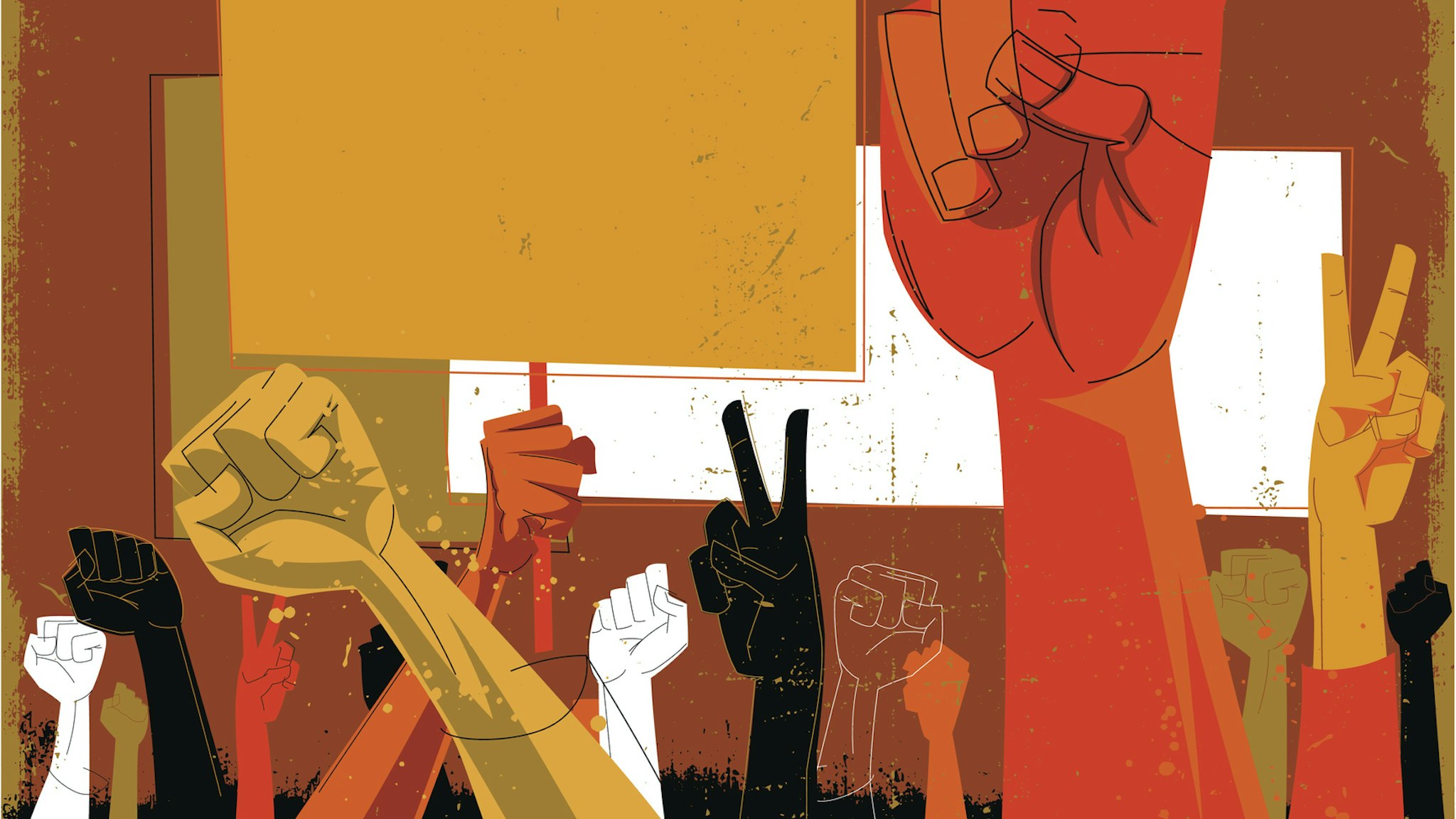Andrew Koppelman, a Northwestern University law professor, recently published two articles, each one about a professor under fire for his classroom speech. But he treats the two professors vastly different, illustrating the double standard that is far too prevalent in today’s free speech debates. He, like too many, says: I support free speech, unless I disagree with you.
Koppelman’s Aug. 12 blog post defended Stanford Law Professor Michael McConnell, who read a historical quotation to his constitutional law class that included the “n” word. Numerous faculty and students condemned him, and some called for him to be punished.
Why does Koppelman vigorously defend McConnell? Because he employs a similar teaching methodology. Like McConnell, he also delves into America’s history of slavery and racism in his constitutional law class. He requires his students to read decisions like Plessy v. Ferguson, which defended racial segregation, and other “awful, racist stuff, blandly clothed in the dry language of legal argumentation.” He then invites them to attack the courts’ reasoning. He believes that every lawyer must develop the ability to anticipate the arguments of the other side and respond to them. His philosophy is: “If you can’t read or hear stuff that enrages you, don’t be a lawyer.”
Koppelman acknowledges some faculty and students disagree with his philosophy. He admits he could be the next victim of an outrage campaign. He understands how easily students could accuse him of being “insensitive,” “showing a lack of respect,” and being “complicit in systemic racism.” They could insist he “need[s] to be held accountable” because his “lack of sensitivity has needlessly harmed [his] students.”
But Koppelman rightly rejects these risks because “this informal norm-setting, enforced by ad hoc groups of students, creates massive uncertainty about where the line is drawn.” This “ethic can and sometimes does degenerate into crude virtue signaling and mob justice,” which is “in some ways worse than administrative censorship, because it is decentralized and unpredictable, the censorship of all against all.” This thinking “damages education whenever it happens” because it “creates an atmosphere of intimidation in which the free exchange of ideas is impossible.”
But when assessing speech he dislikes, a very different and dismissive Koppelman emerges. Five days after defending McConnell, he derided Dr. Nicholas Meriwether, a long-time philosophy professor at Shawnee State University who is involved in a free-speech lawsuit.
In 2018, a male student in Meriwether’s class demanded to be referred to as a woman. Meriwether politely declined but sought to accommodate the student by simply using the student’s last name and avoiding pronouns for this student. The university and student rejected this reasonable compromise. Instead, the university demanded that Meriwether either refer to this student as female, or refer to every student solely by name and stop using any pronouns at all — for every student, both on and off campus. Meriwether respectfully declined because both options required him to endorse philosophies he believes are false, and the latter is impossible and every slip would lead to more punishment.
Meanwhile, the student remained in Meriwether’s class and earned a high grade. Ignoring this, university officials formally reprimanded him. To them, by using standard English, Meriwether discriminated and created a hostile environment. They warned him that if he continued, he would face more punishment. After they denied his grievance, Meriwether filed suit to protect his rights and prevent further punishment.
Unlike his robust defense of McConnell, Koppelman blithely dismisses Meriwether’s free speech rights as “silly stuff.” He ignores that, as with issues of race, there is a debate raging in academia and society about sex and gender identity. Gone are his (rightful) concerns that censoring one side of the debate will result in “informal norm-setting, enforced by ad hoc groups of students, creat[ing] massive uncertainty about where the line is drawn,” even though this is exactly what happens when universities allow students to force professors either to use certain terms or to purge certain terms from their vocabulary based on each student’s subjective offense.
By advocating for censoring Meriwether, Koppelman seeks to deny Meriwether’s students the opportunity to learn about and respond to philosophical ideas they disagree with. This would disserve these students and deprive them of one of the hallmarks of higher education.
Don’t just take my word for it. Listen to Meriwether’s former students. One wrote:
“I’m a queer person. Your personal convictions could not be any further from mine. It doesn’t matter, though. I respect you, and I respect the ideas that you bring to the table of the marketplace of ideas. You made me think. That’s hard to come by these days.”
Another, a self-described atheist, wrote:
“Insulating students from intellectual scrutiny in the name of avoiding offense would be doing them a disservice. You and I saw eye-to-eye on very little and that made those arguments all the more valuable to me. . . . I hope that more people can [rein] in their emotions and see the benefit in having their ideas stress-tested by an earnest lover of wisdom.”
These students powerfully express why I and my colleagues at Alliance Defending Freedom are representing Meriwether and why everyone should cheer him on as he defends free speech: to ensure that public universities remain a marketplace of ideas, not an assembly line for one type of thought.
Tyson Langhofer is senior counsel for Alliance Defending Freedom (@AllianceDefends) and director of its Center for Academic Freedom, which represents Dr. Nicholas Meriwether.


